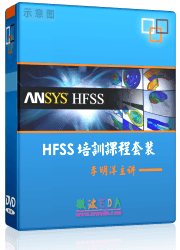|
Create an Analytical Face
Shapes Faces and Apertures Faces and Apertures Analytical Face Analytical Face
In this dialog box you may specify an analytical face by defining the
analytical functions for x(u,v), y(u,v), z(u,v), and the range for the
parameter u, and v. The construction will always be performed in the currently
active .
Each analytical face will be assigned to a particular material
in which all shapes will share the same material properties and colors.
The new analytical face is also associated to a certain component and
is identified by a unique
within this component. The shape can be addressed by this name
for subsequent editing operations.
As soon as the shape is defined it will appear in the
and beneath the associated component in the
Name
Specify the unique
for the analytical face.
X(u,v), Y(u,v), Z(u,v)
Specify a valid function
dependent on the parameters u, and v for defining the coordinates of the
analytical face in global coordinates. Please note that these entries
only appear when the global coordinate system is currently active.
U(u,v), V(u,v), W(u,v)
Specify a valid function
dependent on the parameters u, and v for defining the coordinates of the
analytical face in local coordinates. Please note that these entries only
appear when a local coordinate system is currently active
Min(u/v), Max(u/v)
Specify a valid parameter range for the parameters
u and v.
Component
Choose a new
from the select list. You can also create a new component by typing the
name of the new component.
Material
Select the material
to which this shape will be assigned from the list of previously defined
materials or create a new material by selecting [New
Material...]. You can also load a material from the material library
by selecting [Load from Material Library...].
OK
Press this button to finally create the analytical
face.
Preview
Press this button to create a preview image
of the analytical face. This option is very useful to check the settings
before you actually create the shape.
Cancel
Closes this dialog box without performing any
further action.
Help
Shows this help text.
Example
A hyperbolic paraboloid (saddle surface):
X: u
Y: v
Z: 0.25 *(u^2-v^2)
u range: -4 to 4
v range: -4 to 4
See also
Brick,
Sphere, Cylinder,
Elliptical cylinder, Cone,
Torus, Extrude
Profile, Extrude Face,
Rotate Profile, Rotate
Face, Loft, Shell,
Coordinate systems,
Bond Wire .




HFSS视频教程
ADS视频教程
CST视频教程
Ansoft Designer 中文教程
|
|